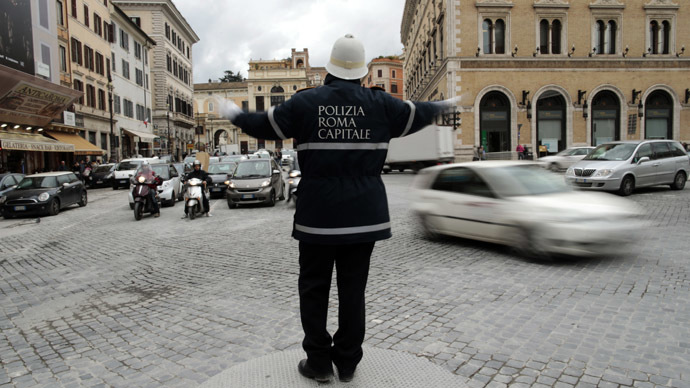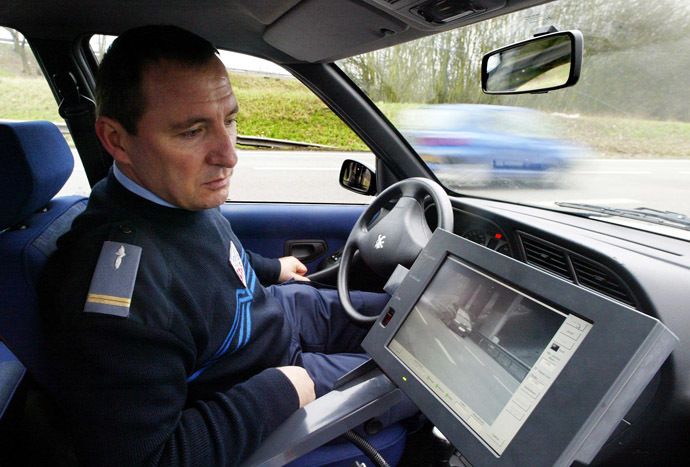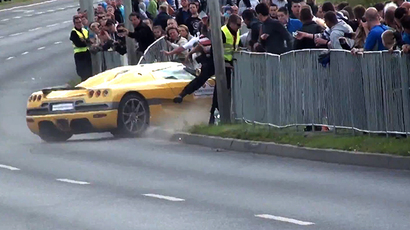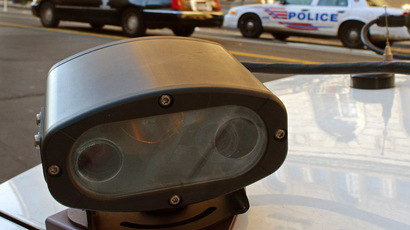EU police want ‘remote kill switch’ on every car

The EU is considering mandatorily equipping of all cars sold in the union with devices, which would allow police to remotely disable engines, according to leaked documents.
If the plan goes as planned, European law enforcers will be able to stop fugitives, suspected criminals and even speeding drivers with a simple radio command from a control room.
The technology is part of a six-year development plan by the ‘European Network of Law Enforcement Technologies’, or Enlets, a working group for police cooperation across the EU, reports the Telegraph.
"Cars on the run can be dangerous for citizens," the newspaper cites a document leaked by state power watchdog Statewatch.
"Criminal offenders will take risks to escape after a crime. In most cases the police are unable to chase the criminal due to a lack of efficient means to stop the vehicle safely," it says.
Remote control of car electronics is far from novel. A modern car is equipped with a network of microcomputers, which monitors and controls everything from ignition and flow of fuel to radio station being played. And increasingly cars can communicate wirelessly, a technology called telematics.
Loan firms and car dealerships has been using the benefits of electronically-controlled cars for years. A vehicle sold in subprime market can be equipped with a black box, which reminds the client of overdue payments with honking horns and flashing lights and would disable the engine completely a few days later, unless the money is paid. And a GPS receiver would tell the dealership the exact location where the car can be collected.

Remote tracking and control is also used as anti-theft measure. Services like General Motors’ Stolen Vehicle Slowdown can force a stolen car to drop speed and stop on a remote command from the service provider.
Giving police the ability to do the same to any car in the EU does not thrill some rights advocates cautious of giving the government more authority.
"We need to know if there is any evidence that this is a widespread problem. Let's have some evidence that this is a problem, and then let's have some guidelines on how this would be used," Statewatch told the Telegraph.
Apart from that, there is a concern of possible hacker attacks, which could use the remote kill switch for nefarious ends. In March 2010 Texas police arrested a former car dealership employee, who used its car tracking and repossession system to disable some 100 vehicles in Austin in revenge for being laid-off.
Researchers from the University of California, San Diego and Washington University tested how much harm hacking can do to a car’s electronic controller. The study conducted in 2010 showed that a criminal can relatively easy interfere with safety-critical systems like brakes.
The security of connected cars has not become hacker-prof since. At the 2014 Consumer Electronics Show this month, technology firm Harman warned that hacking problems for modern cars very serious because the infrastructure of their electronic components was not designed with networking in mind, so they are not ready for the level of exposure to cyber-attacks that internet connectivity brings.














